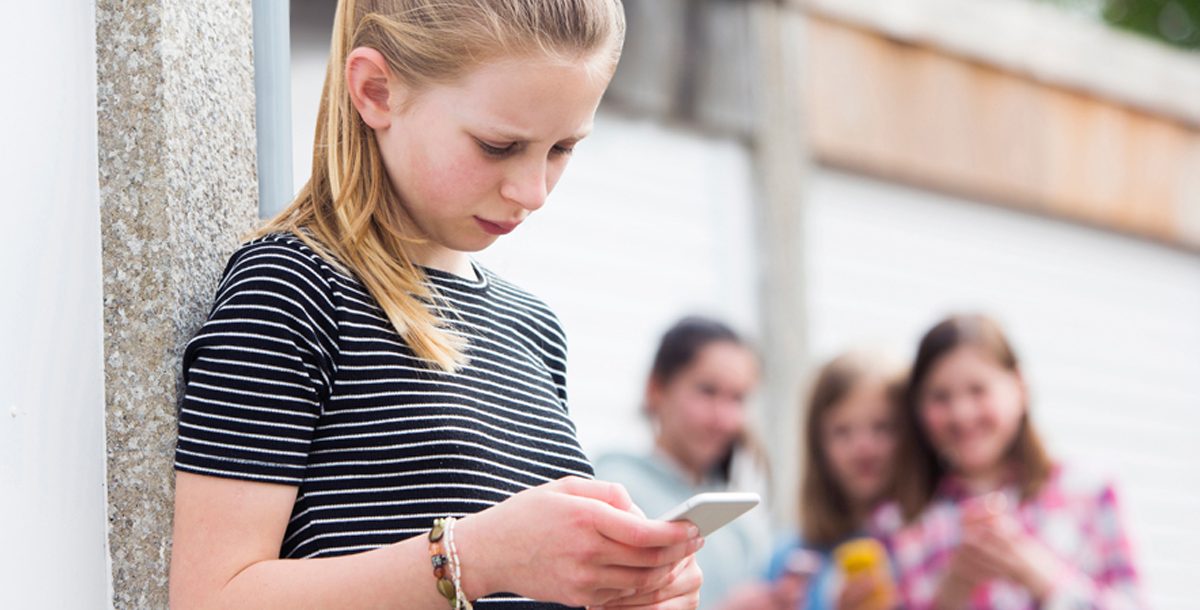If you’re a parent, you may wonder if your child experiences bullying at school. Bullying can fall into four categories: verbal, physical, relational and cyber. However, one type may pose a more constant risk.
Cyberbullying takes place over digital devices like cell phones, tablets and computers. It is more pervasive because it doesn’t stop when a child gets home for the day. Our digital lives follow us everywhere.
Hear from psychiatrist Carson Felkel, M.D., system medical director of Behavioral Health, and learn what to do if your child is experiencing cyberbullying.
What does cyberbullying look like?
According to the U.S. Department of Health and Human Services, cyberbullying can occur through SMS, text, and apps, or online in social media, forums, or gaming where people can view, participate in, or share content.
Identifying what counts as cyberbullying is a bit more difficult. Online activity can range from subtly embarrassing to overtly offensive. A good rule of thumb is content that is negative, harmful, false or mean. An example is someone posting personal information about another individual that causes humiliation.
Signs your child may be experiencing cyberbullying
The age of your child might not matter when it comes to cyberbullying.
“We tend to think of middle and high school children,” says Dr. Felkel. “But it’s absolutely happening in elementary school as well.”
Parents should watch for changes in their child’s behavior. This is easier when you establish an open line of communication in the household.
“Children can typically become irritable, withdrawn or depressed. You can see school performance drop, or they may be more anxious to go to social places, including school,” says Dr. Felkel.
Dr. Felkel acknowledges that behavior can be hard to separate from what might be typical behavior for kids of that age. However, he says there are further signs to look for.
“Kids may want to spend more time on a social media platform to look at comments,” he says. “They might be more withdrawn to their room but increase their social media usage.”
On the flip side, parents may find their child posting content online that could be cyberbullying. Sometimes, the kid might not even realize their actions are harmful. Parents can help by monitoring behavior and calling out what is inappropriate. This provides a learning opportunity to reinforce internet etiquette or “netiquette.”
“Kids who are bullies often have been bullied,” says Dr. Felkel. “They’re probably looking for some type of control in their life, and they’re looking for a response from another kid. So, because we know that they might have been bullied, some of the behaviors may be the same.”
What you can do about cyberbullying
Start daily conversations. Because cyberbullying may be hard to pinpoint as the problem, creating an open line of communication with kids on a regular basis is important. This provides a way to notice changes in behavior and gives kids a chance to bring up problems.
A good way to start a conversation is to set a regular time, maybe over a meal. Have everyone turn off their phones for a designated amount of time to talk about the day.
“In my family, I’ll usually say, ‘tell me something good that happened in your day, something that could have been better, and something that was funny,’” says Dr. Felkel.
It is important parents take a calm, non-judgmental approach so they establish a welcoming, positive relationship their child.
“Kids, when they encounter something negative online, probably feel guilty or shameful,” says Dr. Felkel. “And they may not want to share it with their parents.”
Monitor and stay up to date with social media platforms. Technology changes rapidly. Because kids might not want to share, parents should know what social media platforms kids are using. It is also important to be aware of the types of content shared and how people interact on a platform.
Depending on what parents see they may want to address issues directly, having a conversation about a concern.
“It’s essential to set firm limits and consistent rules while remaining calm,” says Dr. Felkel. “Kids want to know what other people are saying about them. So, if there is an incident, the parent could suggest the kid take a break from reviewing comments.”
Seek professional help if needed. If you have any concerns about your child’s mental health, talk to your primary care physician, pediatrician or family medicine provider.





